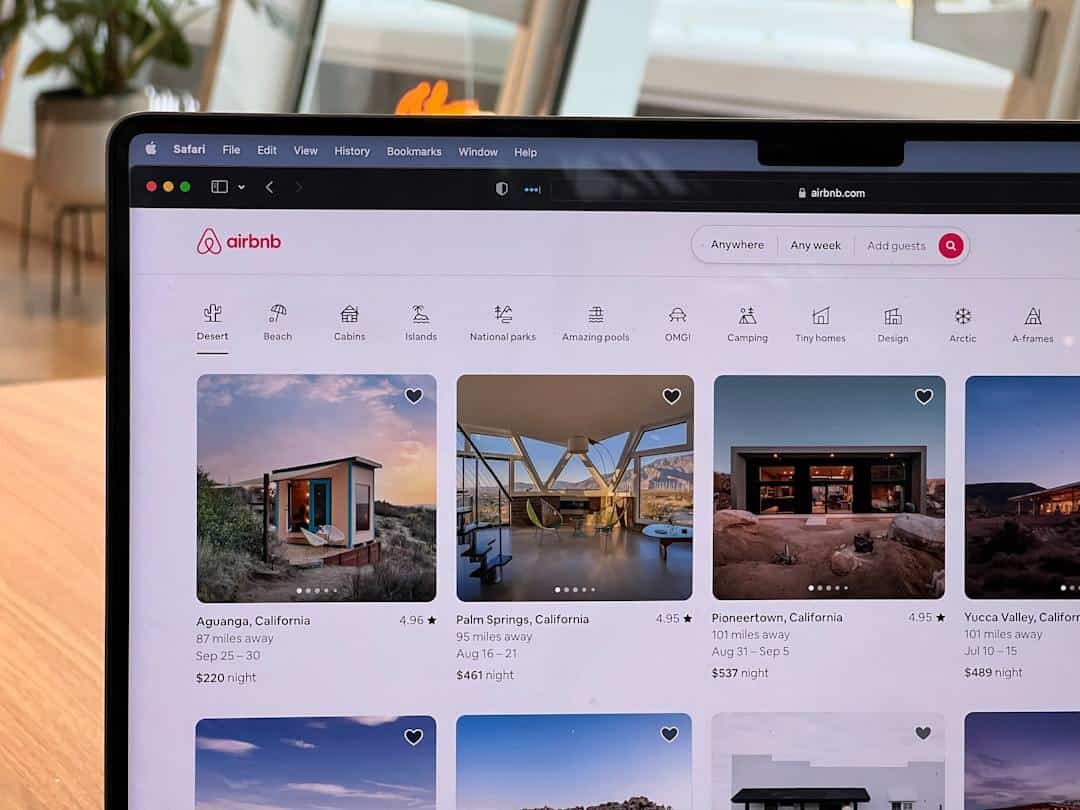Who says you need an office cubicle to become a virtual assistant (VA)? This role is one of the most in-demand remote jobs since the standard of work has transitioned to a remote work setup. If you’re ready to ditch the commute and turn your skills into a remote rockstar career, use this guide on how to become a virtual assistant at home.
Since the work setup has changed drastically, companies—big and small—understand the significance of virtual assistants. This means more opportunities for someone with a background in administrative tasks, social media management, or customer service.
Ready to supercharge your career? Find out how to become a virtual assistant, identify, and develop the skills that will propel you into a rewarding and exciting profession that’s right for you.
What is a Virtual Assistant (VA)?
Imagine having a personal right-hand man (or woman) who tackles pesky chores, saves you time, and supercharges your productivity. That’s essentially what a virtual assistant does.
Virtual assistants are independent contractors who work for themselves, not employees of a company. And this role is for a remote worker who provides administrative support to clients from a home office.
Staying ahead of the curve in today’s fast-paced business environment means deploying virtual assistants to manage the workload deluge. These 20th-century trailblazers possess a knack for crafting emails that spark conversations, expertly juggling responses, and typing away with data entry ease.
Bolstered by breakthroughs in telecommunications, companies can then redistribute freed-up resources toward innovation and revenue-boosting strategies.
Virtual Assistant Duties

When businesses team up with a virtual assistant, they’re getting a trusted partner who can help with everything from managing emails to creating content. The specific duties will depend on their needs, but as a virtual assistant, you must have the skills and expertise to get the job done.
Virtual Assistant Qualifications
Precise organizational skills and nimble communication abilities make you a strong contender in the world of virtual assistance. What’s more? Possessing certification or experience in administration or customer relationships is effective. And if you want to be rewarded with exceptionally more profitable hourly rates, possessing hands-on experience in digital marketing, freelance writing jobs, or bookkeeping strategies is the secret.
How to Become a Virtual Assistant with 8 Simple Steps
Wondering how to become a virtual assistant? It’s a question worth answering. The good news is that it’s totally doable with some planning and hard work. Here’s a more comprehensive and simpler way to become a virtual assistant from home.
Step 1: Assess Your Skills
As you step into the virtual assistant industry, pause to inventory your strengths and passions – what makes you tick? Getting to know yourself is the first step in landing a virtual assistant job that’s just right for you.
Know whether you have organizational prowess, writing skills, and expertise in social media platforms. Here are some must-have skills to thrive as a VA.
1. Communication Skills
The art of communication is a virtual assistant’s best friend.
Crafting killer emails, booking conference calls, and updating social media profiles all rely on one crucial thing: impeccable writing skills and a healthy dose of attention to detail.
2. Time Management
Skilled virtual assistants must master the art of time management to juggle multiple clients and deadlines efficiently. Nothing slips through the cracks with these taskmasters, who juggle calendars, crush to-do lists, and whip out their favorite productivity hacks to stay ahead of the curve.
Remember to be proactive when communicating with clients about timelines and potential delays—it’s crucial for building trust and maintaining solid relationships.
3. Organization

The ability to stay organized is crucial for virtual assistants. You’ll be juggling multiple projects and deadlines and need to understand each client’s requirements.
Tools like Google Drive, Dropbox, and Evernote will be your best friends as you work to store, share, and manage files and information.
4. Technical Proficiency
Think a technical expertise would aid in flourishing more opportunities? Yes, of course.
While strong communication and organizational skills are crucial for virtual assistants, technical proficiency is equally essential. You need to master tools and software programs used in the virtual world.
Basically, you need to be familiar with project management platforms, video conferencing tools, file-sharing services, and office suites like Microsoft Office 365. This could go a long way since most of these are helpful in performing your tasks as a VA.
Additionally, a basic understanding of social media management platforms and content creation tools can be advantageous, depending on your client’s specific needs.
What’s even important here is by staying up-to-date on evolving technologies, you can offer a wider range of services—more potential clients! And clients will consider you an even more valuable asset.
5. Adaptability
As a virtual assistant, you’ll work with clients with different needs, communication styles, and personalities. When the situation demands it, having the agility to pivot and try a new approach is crucial—it’s what sets the winners apart.
Most importantly, you have to set your ego aside and really listen to client feedback. Doing so is having the key to delivering service that truly resonates with them. Remain adaptable and swift to respond as client priorities shift.
6. Problem-Solving
Besides adaptability, practical problem-solving skills are crucial when venturing into the world of virtual assistance.
The secret to a problem-free client experience? Anticipating and addressing potential pitfalls proactively. And with the top remote jobs platforms, you’ve got the perfect tool to make that happen every time.
7. Attention to Detail
Being meticulous in your work as a virtual assistant is also vital. You shouldn’t be afraid to slow down and take the time to review your tasks meticulously, proofreading and re-reading for errors.
That’s because what often sets exceptional client experiences apart from mediocre ones often comes down to a single, tiny detail. So, if you want to deliver an excellent service, ramp up your attention to detail and efficiency and watch satisfaction soar.
8. Marketing and Social Media

Many virtual assistants who consider themselves business owners offer marketing and social media services.
To succeed, you need skills in multiple areas: crafting compelling content, managing social media like a pro, and mastering email marketing. All of which are essential in the digital marketing aspect of business owners.
Oh, and don’t forget basic operational know-how.
Blend artistic flair with technical savvy, and you’ve got graphic design—a fusion of talent and innovation that brings visuals to life. They hold actual worth.
Stay ahead of the curve by keeping up with the latest digital marketing trends and best practices. A profitable virtual assistant with these skills provides exceptional results for clients.
9. Customer Service
Laying the foundation for a strong partnership begins with excellent customer service as a virtual assistant. To achieve that, empower client satisfaction by actively listening to their concerns and promptly addressing their needs.
When you show genuine connections, you’re more likely to build meaningful relationships. And that’s customer relationship management 101.
10. Specialized Skills
Synonymous with administrative tasks, virtual assistants must strive to be more than just general all-rounders. Want to boost your earning potential? Zero in on a specialty like bookkeeping, digital marketing, relationship management, or project management. The more specific your skillset, the higher your rates can climb.
Take digital marketing, for instance. Having expertise in this field can significantly enhance your services.
Step 2: Obtain Necessary Training

Once you’ve listed down your skills, you’ll now have an idea of skills that you’re lacking. If you lack many skills that a virtual assistant should possess, don’t fret. Don’t think that it’s the end of your career.
The solution?
Boost your marketability by investing in training that you need to have. Or do you want to rise above the competition in the virtual assistant space? Focus on developing your skills in areas like social media management and bookkeeping, and you’ll be unstoppable.
In an industry that’s constantly in flux, the only way to survive is to be committed to continuous learning and skill-building, leveraging every opportunity to upskill and reskill.
Step up your skills by exploring the online learning landscape.
Whether it’s tuning in to webinars, reading up on industry blogs, or diving into online courses, stay nimble and adaptable in your field. Gain enough mileage, and you’ll start to notice a specialty emerging – that certain something that makes you shine brighter than the rest.
FlexJobs, Coursera, and others offer online courses and certification programs to enhance your skills.
Step 3: Create a Business Plan

After enhancing your skills, it’s time to craft a killer business plan. Yes, even freelance virtual assistants need a business plan because offering VA services could be an online business.
Here, you must decide on your services, target market, rates, and marketing strategies. It doesn’t have to be fancy—a simple document will do. Besides, professionalism is just a plan away. With one, you’ll stay sharp and directed.
Step 4: Set Up a Home Office

Being a virtual assistant goes beyond having the right skills; it’s also about creating a professional environment that fosters productivity.
So, how should you go about it?
Carve out a dedicated workspace in your home. Here, you must choose a space that’s free from distractions and allows you to focus solely on client work.
You don’t have to have a fancy or a whole room. What’s important is to have a well-lit corner with a comfortable desk and ergonomic chair, as these can work wonders.
Equip Yourself for Success
Complete your space by equipping yourself with the essentials.
Ensure that you have a reliable computer with enough processing power to handle video calls and software applications. An online business isn’t complete without a stable, high-speed internet connection—all of which is crucial for seamless communication and file sharing with clients.
Finally, invest in the necessary software or tools your chosen virtual assistant niche demands. For instance, if you’re working as remote administrative support, you need project management platforms, video conferencing tools, file-sharing services, and productivity suites.
But if you’re also working on clients’ financial records, you need bookkeeping software or accounting management tools. If you’re handling networking events for clients, you need software to keep business directories.
By creating a designated workspace and equipping yourself with the right tools, you’ll be setting yourself up for success. This professional environment will not only boost your productivity but also project a polished image to clients during video calls and presentations.
Step 5: Create a Portfolio

Ready to take your first interview? Well, get your portfolio out there. Because no matter how good you are, if clients can’t see your capabilities, you may not get any clients. Thus, you need to have a virtual assistant portfolio—your chance to shine a spotlight on your expertise and experience.
Why a Portfolio Matters
Think of your portfolio as your virtual resume on steroids. However, unlike a traditional resume, a portfolio allows you to demonstrate your value through concrete examples instead of just listing skills.
Did you manage social media campaigns that boosted engagement for a previous client? Did you create compelling content calendars for a website? When you highlight these achievements (with permission, if confidential data is involved), your clients can clearly see what you, as a virtual assistant, provide for their business.
Building Your Portfolio
The real work starts here. These days, we’re lucky because there are various ways to build a virtual assistant portfolio.
The best way is to create a dedicated website showcasing your skills and experience. Alternatively, you may also consider using online platforms like LinkedIn or Upwork, which allow freelancers to showcase their profiles with relevant work samples.
The question is, what if I’m new to the field? Don’t be discouraged!
What’s important is to showcase your relevant skills in whatever past work experience you have. If none, why not offer pro bono work for your family members who have a business or work for a non-profit to gain experience?
Or even better is to create mock projects that showcase your abilities.
Doing so leads you to build your portfolio that gets you closer to landing your dream virtual assistant job.
Step 6: Develop an Online Presence

As a virtual assistant, having a solid online presence is crucial for attracting clients. Start thinking of your social media profiles as virtual business cards—by sharing timely, relevant content; you’re giving potential clients a compelling reason to get in touch.
Start with a Website
Having a website is just one of the many ways to establish an online presence and attract clients for your virtual assistant business.
That’s why business owners have websites that clearly communicate their services, experience, and value proposition. Since virtual assistants provide a plethora of services, you should determine your niche and specialize in specific services to stand out in the competitive virtual assistant market.
For instance, if you’re a guru as a marketing assistant, create a page that showcases this capability. You may also want to include some insights on the marketing strategies that you’ve been doing or offering.
Moreover, include an “About” page, testimonials, and a contact form. The more information available on your site, the more likely clients will get to know you. Craft compelling content that showcases your know-how and draws in visitors to your website.
Optimize Your Website for Search Engines
Of course, you should optimize your website for search engines and ensure it’s mobile-friendly to reach a wider audience of potential clients.
Your website should be easy to navigate, which means that search engines can index it to relevant topics. This is vital to increasing your chances of appearing on the top pages of the search engine results pages (SERPs).
The trick here is to know the search engine optimization (SEO) ranking factors. One of these is to research the relevant keywords that your target clients are using to search for virtual assistant services. Once you have a list of keywords, use them naturally in your website copy, headings, and meta descriptions.
Again, keywords should be used naturally and not forced or stuffed. If you’re stuffing keywords to trick search engine crawlers, Google is more likely to penalize you.
Another way is to build high-quality backlinks from reputable websites in your industry. How to get backlinks? Provide valuable content that shows your expertise and regularly update your site with fresh content so that reputable websites will want to link back to your site.
Doing so helps improve your SERP rankings as search engine crawlers view backlinks from reputable sites as a sign that you’re an authority in your industry.
Leverage Social Media Marketing
Let’s not forget social media marketing. Almost every online business I know has a social media platform to engage with its target market, making it one of the most essential marketing strategies for business owners.
You can use social media marketing to promote your virtual assistant business and engage with potential clients. Choose the social media platforms where your target audience is most active, such as LinkedIn, Facebook, or Instagram.
For instance, if you want to cater to a specific online business, you may want to join a Facebook Group that your potential clients are members of. Interact with them or get to know them in this group since it’s a community where they may be hanging out.
Step 7: Network and Market Yourself

Building an online presence is not the only job you have. You should also network—attend industry events, participate in online forums, and communicate directly with other professionals. Discover opportunities and rise to the occasion to thrive in this career.
Attend Industry Events and Job Fairs
Don’t just live online. As a business owner, you also need to attend industry events and job fairs. Your purpose here is not just to look for clients but also to meet with professionals and join forces with like-minded associates.
By doing so, you can build a network where your name is known. The thing about networking is that they can refer you to their clients or partners as well, especially if you’ve made a good impression. And that’s free marketing!
When attending such events, you should also prepare an elevator pitch and have business cards or a digital resume ready to share. That way, you can cultivate those new connections by staying in touch and exploring ways to collaborate, which could lead to exciting opportunities.
Step 8: Look for Jobs and Clients
Time to bring in the clients—the most exciting part, yet so challenging. Don’t just rely on search engines to make your services appear on potential clients’ SERPs. That could take time, and if you want to earn from this job and other online work opportunities, you need to keep working.
Utilize Your Online Presence
Leverage your social media profiles to network and promote your virtual assistant business. Getting noticed by potential clients has never been easier, thanks to social media.
By posting high-quality content on sites like LinkedIn, Facebook, and Twitter, you can establish yourself as a thought leader in your industry and build valuable connections. Reach deep into your bag of tricks and share insights that showcase your mastery of the craft – it’s a surefire way to establish credibility.
Carve out a spot in the online conversation by engaging with peers on professional forums, trading tips, and learning from one another. The more your credibility shines, the more potential clients will beat a path to your door.
In addition to social media marketing, you can use social media to find virtual assistant jobs and connect with potential clients.
Follow companies and entrepreneurs in your target market and engage with their content. Use relevant hashtags to make your posts more discoverable, and join virtual assistant or freelance groups to network with other professionals.
Aim to gather praise from happy clients to win over potential customers and boost your reputation.
Check Job Boards and Career Websites
Another way is to take advantage of job boards and career websites where many companies and entrepreneurs post virtual assistant jobs. Check sites like FlexJobs, Upwork, and Virtual Assistant Forums regularly for new opportunities.
Moreover, network with other virtual assistants to learn about unadvertised job openings and potential clients.
Reach Out Directly to Clients
Please don’t be hesitant to connect with companies and entrepreneurs who could greatly benefit from your virtual assistant services. Imagine your ideal customer, then write an email that feels like it was written specifically for them, highlighting the benefits that only you can offer.
Fresh engagements with potential clients require periodic refreshers. Build on earlier conversations to transform casual connections into substantial collaborations. Even if they don’t need a virtual assistant right away, they may keep you in mind for future opportunities or refer you to others in their network.
Ask for Referrals
As a valuable reference, don’t underestimate the power of word-of-mouth referrals to find new virtual assistant clients. Simply ask your current and past clients if they know anyone else who could benefit from your expertise.
You can also incentivize your loyal clients by offering them discounted rates or exclusive bonuses. Make referral magic happen by providing them with a go-to template or a direct link to your website and social media profiles.
FAQs
What does it take to be a virtual assistant?
Becoming a virtual assistant entails a lot. Clients will assume that you have solid communication skills, technical proficiency, and the ability to manage your time like a pro. You’ll also need to be adaptable, have a customer-centric mindset, and be comfortable working independently.
How do you qualify as a virtual assistant?
In addition to the basic skills we mentioned above, you may want to become an expert in one or two areas. For instance, being social media savvy and having bookkeeping chops are niche skills that make them attractive hires for entrepreneurs and small business owners.
How much do virtual assistants earn?
A virtual assistant can receive pay based on experience, skill set, location, and employment model. But generally, entry-level VAs might start around $3-$5 per hour, while experienced specialists with in-demand skills can command upwards of $15 per hour.
What certifications do you need to be a virtual assistant?
You don’t need one since there’s no mandatory certification. However, as mentioned in our guide on how to become a virtual assistant, you may need to acquire specialized skills to stand out. These skills include certifications that you can use as proof that you’re an expert in that area—social media marketing, project management, or bookkeeping.
Conclusion
Imagine waking up every morning feeling energized and motivated to tackle the day as a virtual assistant—a career path that can bring immense satisfaction.
Start following this guide on how to become a virtual assistant, and you’ll be crafting a thriving career in virtual assistance in no time. Remember, to really thrive, you should combine relentless learning, an obsessive focus on client delight, and strategically build your online presence.
It takes sacrifice, patience, and a commitment to continuous improvement, but the result is a business that genuinely makes a difference.
Break free from the 9-to-5 grind, or simply explore new professional avenues by being a virtual assistant!






